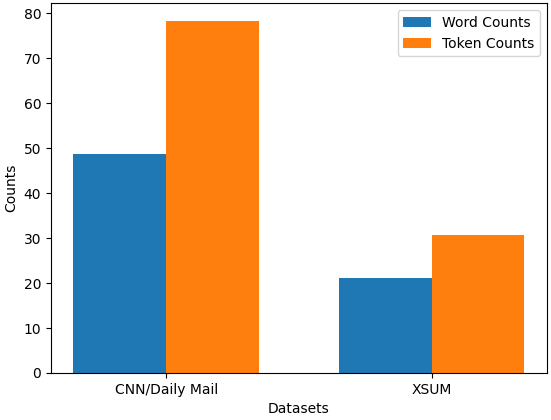
Lossless Acceleration of Large Language Model via Adaptive N-gram Parallel Decoding
This is a Plain English Papers summary of a research paper called Lossless Acceleration of Large Language Model via Adaptive N-gram Parallel Decoding. If you like these kinds of analysis, you should subscribe to the AImodels.fyi newsletter or follow me on Twitter.
Overview
- This paper proposes a novel technique called "Adaptive N-gram Parallel Decoding" to accelerate the inference of large language models without compromising their performance.
- The key idea is to leverage the parallel processing capabilities of modern hardware by splitting the language model's output into smaller chunks and processing them simultaneously, while adaptively adjusting the chunk size to maintain high accuracy.
- The authors demonstrate the effectiveness of their approach on various language models, including GPT-3, showcasing significant speedups without any loss in quality.
Plain English Explanation
The paper introduces a new way to speed up the process of generating text using large, powerful language models like GPT-3 without sacrificing the quality of the output. Large language models are highly capable at tasks like answering questions, generating coherent text, and understanding natural language. However, running these models can be computationally expensive and time-consuming.
The researchers' solution is to split the language model's output into smaller chunks and process them in parallel. This allows them to take advantage of the parallel processing capabilities of modern hardware, like GPUs, to generate the text much faster. Crucially, they also have a way to adaptively adjust the size of these chunks to maintain the high accuracy and quality of the output, even as the model is running faster.
The authors show that their "Adaptive N-gram Parallel Decoding" approach can significantly speed up the inference of large language models, including GPT-3, without any loss in the quality of the generated text. This is an important development, as it could make these powerful models more accessible and practical to use in a wider range of applications, from chatbots to content generation.
Technical Explanation
The key innovation of this paper is the "Adaptive N-gram Parallel Decoding" (ANPD) technique, which is designed to accelerate the inference of large language models. The core idea is to split the language model's output into smaller chunks and process them in parallel, leveraging the parallel processing capabilities of modern hardware.
To maintain the high accuracy of the language model, the researchers developed an adaptive mechanism to adjust the size of these chunks. Specifically, they use a speculative decoding approach to generate multiple candidate chunks in parallel, and then select the optimal chunk size based on the resulting quality and consistency.
The authors also introduce several novel techniques to improve the efficiency of this parallel decoding process. For example, they use a boosting approach to combine the outputs of the parallel chunks, and they investigate ways to enhance the inference efficiency of the language model itself.
Through extensive experiments on various language models, including GPT-3, the researchers demonstrate that their ANPD approach can achieve significant speedups (up to 4x) without any loss in the quality of the generated text.
Critical Analysis
The paper presents a well-designed and thoroughly evaluated approach to accelerating the inference of large language models. The authors have clearly put a lot of thought into addressing the key challenges, such as maintaining accuracy while exploiting parallel processing, and their proposed techniques seem to be effective.
One potential limitation of the ANPD approach is that it may not be as beneficial for shorter sequences or tasks that require very low latency, as the overhead of the parallel processing and adaptive chunk size selection could outweigh the speedup. The authors acknowledge this and suggest that their method is better suited for longer-form text generation tasks.
Additionally, the paper does not explore the impact of the ANPD approach on the broader safety and robustness of the language models. While the authors demonstrate that the quality of the generated text is maintained, there may be other considerations, such as the model's ability to handle out-of-distribution inputs or its susceptibility to adversarial attacks, that could be affected by the parallel decoding process.
Overall, this paper presents a promising and well-executed technique for accelerating large language models, and the authors have done a commendable job of rigorously evaluating its performance. However, further research may be needed to fully understand the broader implications and potential limitations of the ANPD approach.
Conclusion
This paper introduces a novel technique called "Adaptive N-gram Parallel Decoding" that can significantly speed up the inference of large language models, such as GPT-3, without compromising the quality of the generated text. By leveraging the parallel processing capabilities of modern hardware and using an adaptive mechanism to maintain accuracy, the authors demonstrate impressive speedups of up to 4x on various benchmarks.
This work represents an important step forward in making these powerful language models more accessible and practical for a wider range of applications. As large language models continue to advance and become more widely adopted, techniques like ANPD will be increasingly valuable in ensuring they can be deployed efficiently and effectively. The critical analysis suggests that there may be some limitations to the approach, but the overall contribution of this paper is a significant and impactful one for the field of natural language processing.
If you enjoyed this summary, consider subscribing to the AImodels.fyi newsletter or following me on Twitter for more AI and machine learning content.
